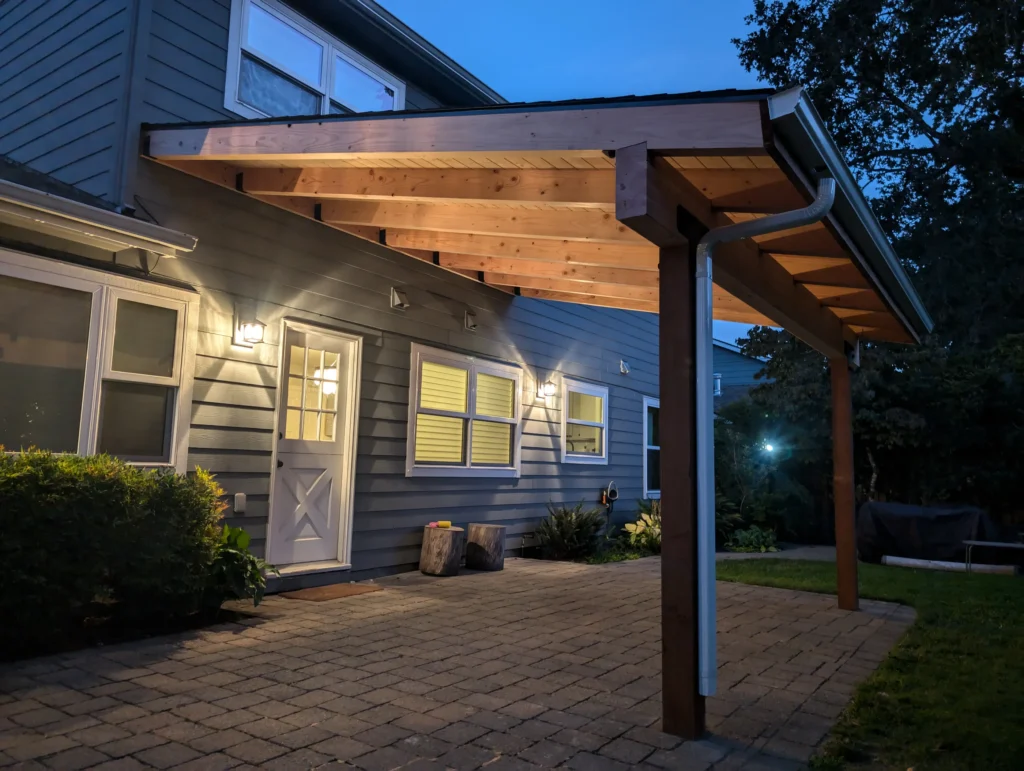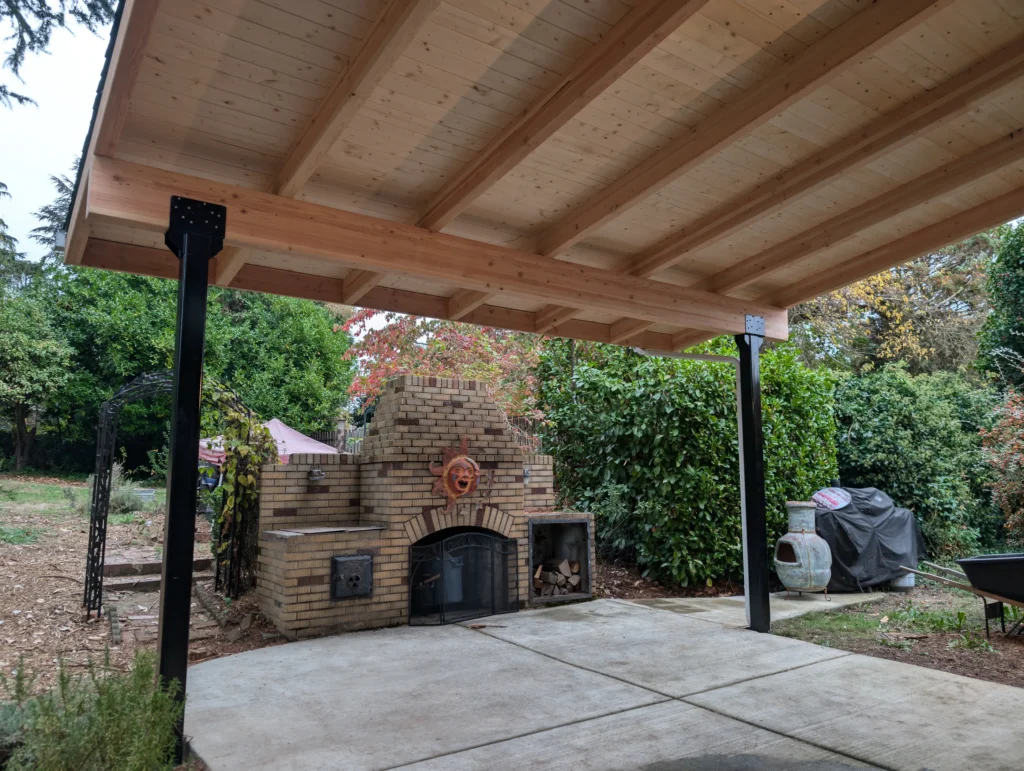Lean-to patio covers are one of the most practical ways to expand your outdoor living space in Oregon. They maximize smaller areas, shield you from rain, and create a seamless indoor-outdoor connection. This guide explores their benefits, materials, costs, and frequently asked questions while showing how Sunno Construction delivers long-lasting, stylish results.
Why Lean-To Patio Covers Make Sense in Portland
In Portland’s rainy climate, outdoor living can feel limited. Lean-to patio covers solve this by creating an affordable, compact structure that adds year-round usability. Their angled roofline directs rainwater away, while the simple attachment to your home keeps installation efficient and cost-effective.
Space-Efficient Design
Perfect for side yards and narrow patios, lean-to covers make the most of smaller outdoor areas.
Seamless Indoors–Outdoors Flow
They look like a natural extension of your home, offering shade and shelter without feeling bulky.
Year-Round Weather Protection
Designed for Oregon’s variable weather, lean-to covers provide reliable shelter from sun, wind, and rain.

Stylish, Customizable Options
Choose from cedar, aluminum, polycarbonate, or even glulam beams with steel posts—like in our Patio Cover with Glulam Beams, Steel Posts, & Skylift Risers project.
Popular Materials and Styles
Cedar or Redwood
Warm and natural, cedar is rot-resistant and ideal for blending into Oregon landscapes.
Aluminum
Lightweight, durable, and low-maintenance. Great for modern aesthetics.
Polycarbonate Panels
These panels filter light, block UV rays, and keep your patio bright yet comfortable.
Glulam Beams & Steel Posts
For strength and a modern look, glulam paired with steel posts is a premium choice. See our full guide on Durable Patio Covers in Oregon.
Lean-To Patio Cover Costs and Value
Lean-to covers are one of the most budget-friendly patio options. Costs typically range from $6,000–$15,000 depending on:
• Size and square footage
• Materials (cedar vs aluminum vs polycarbonate)
• Custom features like skylights, lighting, or heaters
• Site complexity and permits
While affordable, they deliver high ROI by improving outdoor living, boosting curb appeal, and increasing home value.
Frequently Asked Questions
Are lean-to patio covers durable in Portland’s climate?
Yes. Cedar, aluminum, and glulam beams withstand Oregon’s rain and wind when built correctly.
Do I need a permit for a lean-to patio cover?
Most covers in Oregon require permits. Sunno Construction handles permitting to ensure compliance.
How long does a lean-to patio cover last?
Wood covers last 20–30 years with maintenance, while aluminum and steel structures can exceed 40 years.
Can I add lighting or heating?
Yes. Options include recessed lighting, ceiling fans, and heaters for year-round comfort.
How long does installation take?
Most lean-to projects are completed in 1–2 weeks depending on design complexity.
Can a lean-to patio cover attach to my deck?
Yes. They can anchor to existing decks, patios, or concrete foundations.
Which is better for a deck—wood or composite?
For details, see our comparison article: Wood vs. Composite Decking: Pros and Cons for Oregon Homes
Will a patio cover increase home value?
Definitely. They improve livability and boost resale value, especially in climates like Portland.
How do I maintain my patio cover?
Cedar requires sealing every few years. Aluminum just needs occasional rinsing. Polycarbonate panels should be cleaned gently.
Build Your Lean-To Patio Cover with Sunno Construction
Ready to upgrade your outdoor space? Contact Sunno Construction today for a free quote!


